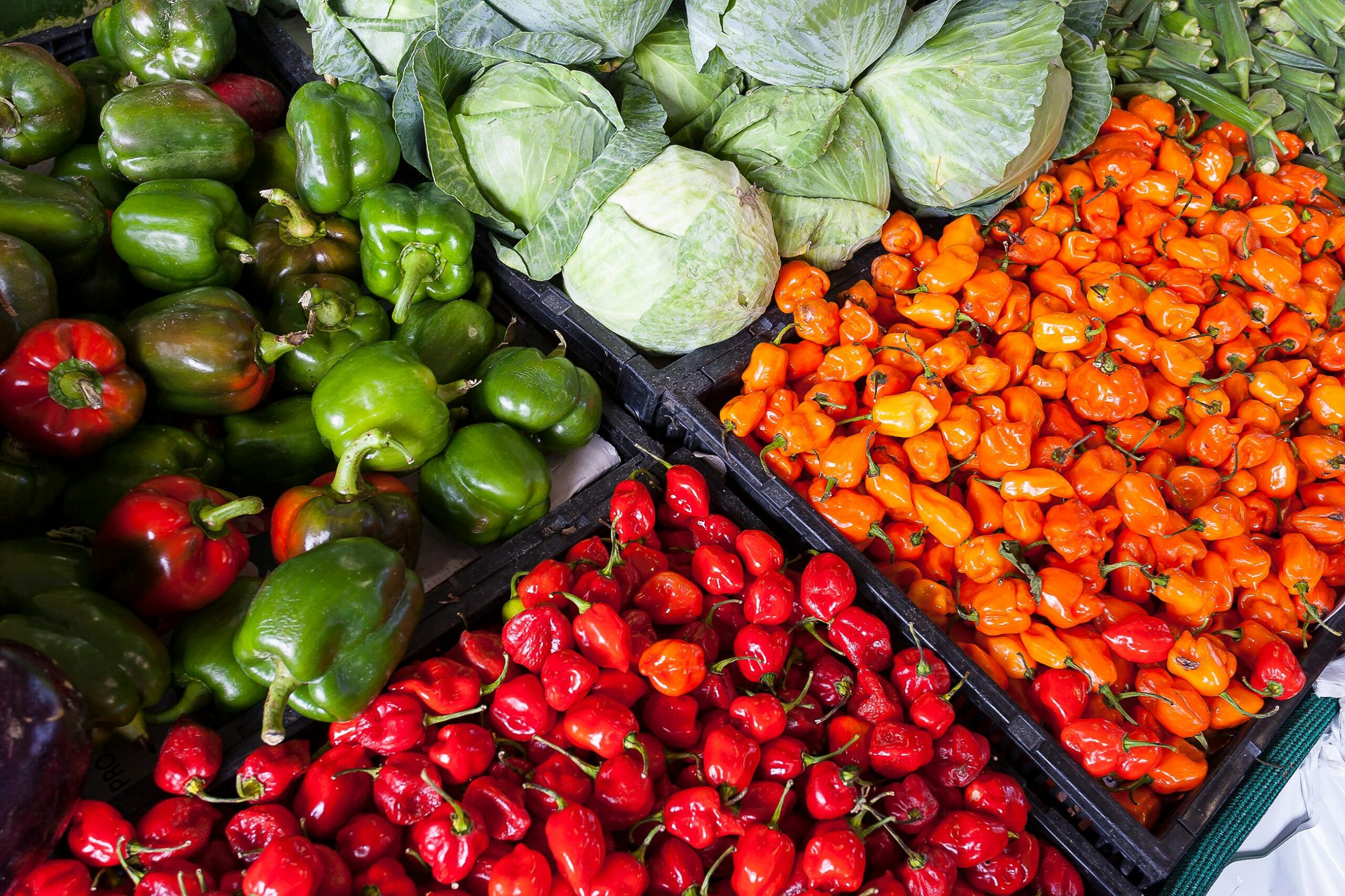Welcome to our informative blog article on organic certification! In today’s health-conscious world, more and more consumers are seeking out organic products. But what does it actually mean for a product to be certified organic? In this article, we will delve into the details of organic certification, exploring what it entails, why it’s important, and the benefits it brings. Whether you’re a consumer looking to make informed choices or a producer considering organic certification for your products, this article will provide you with valuable insights to help you navigate the world of organics. So, let’s dive in and uncover the secrets behind organic certification!
The Importance of Organic Certification
Organic certification serves as a crucial indicator of the integrity and quality of organic products. It provides consumers with assurance that the product has been produced following strict organic standards and regulations. Here are some key reasons why organic certification is so important:
1. Ensuring Organic Integrity
Organic certification ensures that the entire production process, from cultivation to processing, meets the defined organic standards. This includes using organic seeds, avoiding synthetic pesticides and fertilizers, and implementing sustainable farming practices. By obtaining organic certification, producers commit to upholding these standards and maintaining the integrity of their products.
2. Building Consumer Trust
Consumers often rely on organic certification labels to make informed purchasing decisions. Through third-party verification, organic certification provides a level of trust and transparency. When consumers see the certified organic label, they can be confident that the product meets stringent organic requirements and has been independently verified.
3. Supporting Sustainable Agriculture
Organic certification encourages sustainable agriculture practices that promote soil health, biodiversity, and ecological balance. By avoiding the use of synthetic chemicals, organic farming protects the environment and reduces pollution. This not only benefits the ecosystems surrounding the farms but also contributes to the overall health of our planet.
4. Protecting the Health of Consumers
Organic certification prohibits the use of genetically modified organisms (GMOs) and restricts the use of harmful chemicals. This means that organic products are free from potentially harmful residues, such as pesticides and antibiotics, which can have detrimental effects on human health. Choosing certified organic products helps consumers reduce their exposure to these harmful substances.
5. Supporting Local Communities
Organic certification often goes hand in hand with supporting local farmers and communities. Organic farms tend to be smaller, family-owned operations that prioritize sustainable practices and local markets. By choosing organic certified products, consumers contribute to the growth and sustainability of local economies, helping to create a more resilient and vibrant community.
Now that we understand the significance of organic certification, let’s explore the process of obtaining this certification and the specific requirements that producers must meet. Stay tuned!
The Certification Process: Steps to Organic Certification
Becoming certified organic involves a rigorous process that ensures compliance with organic standards. Let’s take a closer look at the steps involved:
1. Application and Documentation
The first step towards organic certification is submitting an application to a recognized certifying body. This application includes detailed documentation, such as farm or production plans, inputs used, and records of previous practices. The certifying body reviews these documents to ensure they align with organic regulations.
2. On-Site Inspection
Once the application is approved, an on-site inspection is scheduled. Trained inspectors visit the farm or production facility to assess compliance with organic standards. They evaluate factors like soil health, pest management practices, and record-keeping systems. The inspection helps verify that the applicant is following organic practices consistently.
3. Compliance Evaluation
After the on-site inspection, the certifying body evaluates the inspector’s report and determines whether the applicant meets the necessary organic requirements. They assess if any non-compliances were identified during the inspection and whether corrective actions have been taken. If all criteria are met, the certification is granted.
4. Annual Renewal and Inspections
Organic certification is not a one-time process; it requires annual renewal. This involves submitting updated documentation and undergoing regular inspections to ensure continued compliance. These inspections help maintain the integrity of the certification and provide assurance to consumers.
5. Labeling and Traceability
Once certified, producers gain the right to use specific organic labels on their products. These labels signify compliance with organic standards and help consumers easily identify certified organic products. Additionally, maintaining detailed records and implementing traceability systems is crucial to ensure the integrity and transparency of the supply chain.
By adhering to these steps, producers can obtain organic certification and demonstrate their commitment to organic practices. In the next section, we will explore the specific requirements that organic producers must meet to obtain certification. Stay tuned!
Meeting Organic Certification Requirements
Organic certification comes with stringent requirements that producers must adhere to. Let’s delve into the specific criteria that organic producers must meet:
1. Organic Inputs and Practices
To obtain certification, organic producers must use organic-approved inputs and practices. This means using organic seeds and avoiding synthetic pesticides, herbicides, and fertilizers. Instead, organic farmers rely on natural alternatives like compost, crop rotation, and biological pest control methods to maintain soil fertility and manage pests.
2. Soil and Crop Management
Organic certification emphasizes the importance of soil health and sustainable crop management. Organic farmers prioritize building soil organic matter, minimizing soil erosion, and enhancing biodiversity. They employ practices such as cover cropping, mulching, and proper irrigation techniques to promote healthy and productive soils.
3. Livestock Welfare and Feed
If the organic certification involves livestock production, additional requirements come into play. Organic livestock must have access to outdoor areas, receive organic feed, and be raised without the use of growth hormones or antibiotics. Their welfare and well-being are given utmost importance, ensuring they are raised in a humane and natural environment.
4. Record Keeping and Documentation
Accurate record keeping is vital for organic certification. Producers must maintain detailed records of inputs used, practices followed, and any other relevant information. These records help ensure traceability and provide evidence of compliance during inspections and audits.
5. Compliance with Regulations
Organic certification requires strict compliance with organic regulations set by the certifying bodies. Producers must familiarize themselves with these regulations and continuously stay updated with any changes. This includes understanding labeling requirements, prohibited substances, and any additional regional or national standards that may apply.
By meeting these requirements, organic producers demonstrate their commitment to producing high-quality organic products. In the next section, we will explore the numerous benefits that organic certification brings to producers, consumers, and the environment. Keep reading!
The Benefits of Organic Certification
Organic certification offers a multitude of benefits for producers, consumers, and the environment. Let’s explore the advantages that organic certification brings:
1. Market Access and Premium Pricing
Organic certification opens doors to niche markets and consumers who specifically seek out organic products. Certified organic producers can access premium price points due to the perceived value and quality associated with organic goods. This can result in increased profitability and market competitiveness.
2. Consumer Confidence and Trust
Consumers trust organic certification labels as a symbol of quality and integrity. By obtaining organic certification, producers gain the trust and confidence of consumers who prioritize healthier and more sustainable choices. This trust translates into increased sales and brand loyalty.
3. Environmental Stewardship
Organic farming practices prioritize environmental sustainability. By avoiding synthetic chemicals and promoting biodiversity, organic producers contribute to the conservation of ecosystems, soil health, and water quality. Organic agriculture helps mitigate climate change by reducing greenhouse gas emissions and promoting carbon sequestration in the soil.
4. Health Benefits for Consumers
Certified organic products are free from synthetic pesticides, GMOs, and other potentially harmful substances. Choosing organic products reduces consumers’ exposure to these chemicals, promoting better health outcomes. Organic foods are also known to have higher levels of beneficial nutrients, antioxidants, and lower levels of pesticide residues.
5. Support for Rural Communities
Organic certification often supports local and small-scale farmers, contributing to the growth and sustainability of rural communities. Organic farming practices create employment opportunities and encourage local economic development, helping to foster resilient and vibrant rural areas.
6. Long-term Sustainability
Organic certification signifies a commitment to long-term sustainability. By following organic practices, producers help protect natural resources, conserve biodiversity, and maintain the productivity of farmland for future generations. Organic farming is focused on preserving and nurturing the environment rather than depleting it.
These benefits demonstrate the value and significance of organic certification for all stakeholders involved. In the next section, we will address common misconceptions and challenges associated with organic certification. Stay tuned!
Dispelling Misconceptions and Addressing Challenges
While organic certification offers numerous benefits, there are also misconceptions and challenges associated with it. Let’s address some of these misconceptions and challenges:
1. Higher Costs and Limited Availability
One common misconception is that organic products are always more expensive and difficult to find. While it is true that organic products may sometimes be priced slightly higher, this is due to the additional costs associated with organic farming practices. However, as demand for organic products continues to grow, availability and affordability are also improving.
2. Certification Process Complexity
Obtaining organic certification can be seen as a complex and time-consuming process. The documentation, inspections, and compliance requirements may appear daunting, especially for small-scale producers. However, with proper guidance and support from certifying bodies, farmers can navigate through the process and ensure compliance with organic standards.
3. Risk of Contamination
Organic farms face the challenge of potential contamination from neighboring conventional farms. Pollen drift, water runoff, or accidental pesticide spray can introduce non-organic substances into organic fields. To mitigate this risk, organic producers implement buffer zones, maintain open communication with neighboring farms, and conduct regular testing to ensure the integrity of their organic crops.
4. Labeling Confusion
The presence of various labeling claims, such as “natural,” “non-GMO,” and “sustainable,” alongside organic certification can lead to confusion among consumers. It is important to understand that organic certification is the only regulated label that guarantees adherence to specific organic standards. Consumers should look for the certified organic label to ensure they are purchasing products that meet rigorous organic requirements.
5. Continuous Education and Adaptation
Organic farming practices are constantly evolving as new research and technologies emerge. Organic producers face the challenge of staying updated with the latest organic standards, practices, and regulations. Continuous education, networking with other organic farmers, and participating in workshops and conferences are essential for staying informed and adapting to changes in the organic industry.
By addressing these misconceptions and challenges, we can promote a better understanding of organic certification and its role in sustainable agriculture. In the final section, we will summarize the key points discussed and reiterate the importance of organic certification for consumers and producers alike. Keep reading!
In conclusion, organic certification plays a crucial role in ensuring the integrity, quality, and sustainability of organic products. It provides consumers with confidence and trust, knowing that certified organic products meet strict organic standards. Organic certification also supports environmental stewardship, promotes healthier choices, and contributes to the well-being of rural communities.
While there may be misconceptions and challenges associated with organic certification, it is important to recognize the benefits it brings. Market access, premium pricing, and consumer loyalty are just a few advantages for producers. For consumers, organic certification guarantees healthier options, reduced exposure to harmful substances, and support for sustainable agriculture.
By understanding the certification process, meeting the requirements, and dispelling misconceptions, both producers and consumers can fully embrace the value of organic certification. Let’s continue to support organic farming practices and contribute to a healthier, more sustainable future.
Thank you for joining us on this informative journey exploring the world of organic certification. We hope this article has provided you with valuable insights and empowered you to make informed choices when it comes to organic products. Stay tuned for more informative content on our blog!

